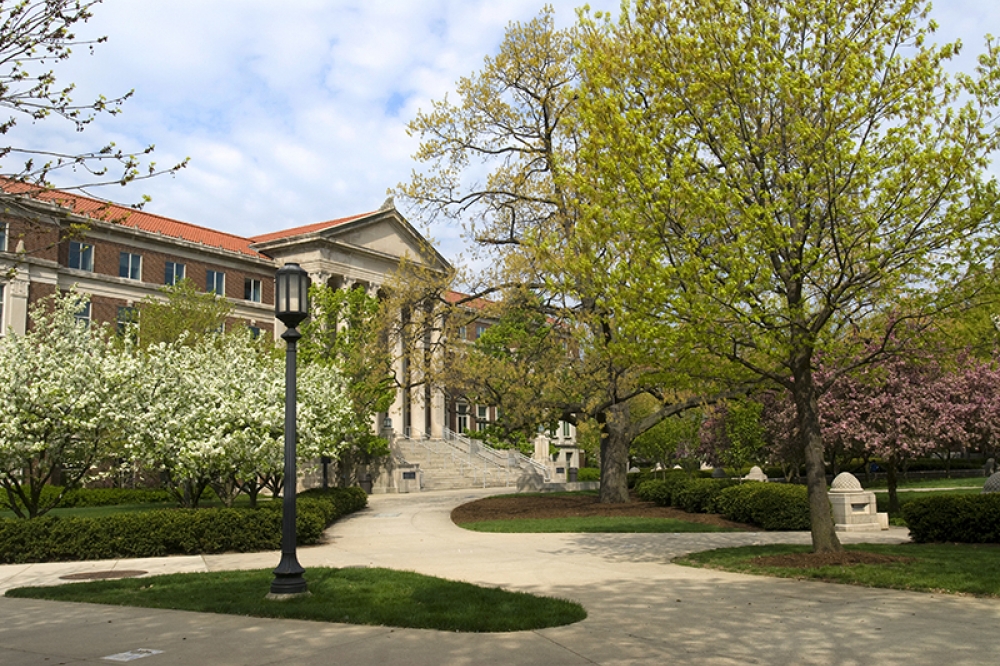Costa Rica unveils semiconductor roadmap

Purdue President Mung Chiang joins Commerce Secretary Gina Raimondo on trip to Costa Rica to advance semiconductor partnerships.
Purdue University President Mung Chiang joined Secretary of Commerce Gina Raimondo, senior staffers from the Department of Commerce, and the leadership and members of the Semiconductor Industry Association (SIA) on a trip to Costa Rica to advance semiconductor partnerships to help bolster the global semiconductor ecosystem and build supply chain sustainability and resilience.
Like many other nations, Costa Rica is launching its own national initiative in the semiconductor space. The visit was marked by Costa Rican President Rodrigo Chaves unveiling his nation’s semiconductor industry road map at an event held in San Jose on March 21).
“Purdue is delighted to be invited to join the Commerce Department and SIA during a trip to Costa Rica, as its presidential road map of semiconductors is unveiled and Purdue’s contribution is announced to help near-shore resilient supply chains to neighboring democracies,” Chiang said. “As America’s leading university in chips education, research, industry partnership and global collaboration, Purdue continues to work closely with Sen. Todd Young and Secretary Gina Raimondo to advance this critical foundation for national security and economic security.”
During a leadership roundtable led by Raimondo, Chiang announced a three-point action plan to boost Purdue’s semiconductor partnership with Costa Rica:
Purdue will offer the Semiconductor Degrees Program curriculum to Costa Rica’s top universities and provide opportunities to access collaborative research and educational resources such as nanoHUB and chipshub.
Purdue University Online will make available Spanish versions of its interdisciplinary Master of Science in Engineering, with a specialization in microelectronics and semiconductors, and its Master of Science in artificial intelligence, while also collaborating with Costa Rica’s Digital Center of Excellence.
Purdue’s College of Engineering will explore collaboration with top Costa Rican universities on research and innovation in chip design and packaging.
Last July the U.S. State Department announced that it will partner with the Costa Rican government to explore opportunities to diversify and grow the global semiconductor ecosystem. The partnership was enabled by the International Technology Security and Innovation (ITSI) Fund, created as a part of the U.S. CHIPS and Science Act of 2022.
Raimondo is no stranger to Purdue’s expertise in the semiconductor and microelectronics space. In September 2022 she, along with Secretary of State Anthony Blinken, toured Purdue’s semiconductor facilities, including the Birck Nanotechnology Center. The tour highlighted the university’s leading-edge research and workforce development efforts that can help the United States restore domestic semiconductor manufacturing and competitiveness abroad.
Raimondo also took part last spring in Purdue’s inaugural national CHIPS summit in Washington, D.C., to forge national solutions in the U.S. semiconductor industry, saying at the time, “I was blown away by what I saw when I visited Purdue, insofar as, in my assessment, it is exactly what the United States needs to be doing.”
International partnerships have become a hallmark of excellence for Purdue, and not only in the semiconductor ecosystem. Over the past 12 months, the university has forged agreements and memorandums of understanding with numerous countries, including Belgium, India, Japan, Taiwan and Greece, as well as with multiple academic and industry partners.
Next month Purdue will again host a high-profile national CHIPS summit to further explore the nation’s critical semiconductor industry. The daylong summit, named CHIPS for America: Execute for Global Success, will convene key government, industry and academic stakeholders from the U.S. and allied nations to discuss mutually reinforcing road maps for semiconductor R&D and workforce in a global context. The event will be April 17 at the Russell Senate Office Building in Washington, D.C.

































